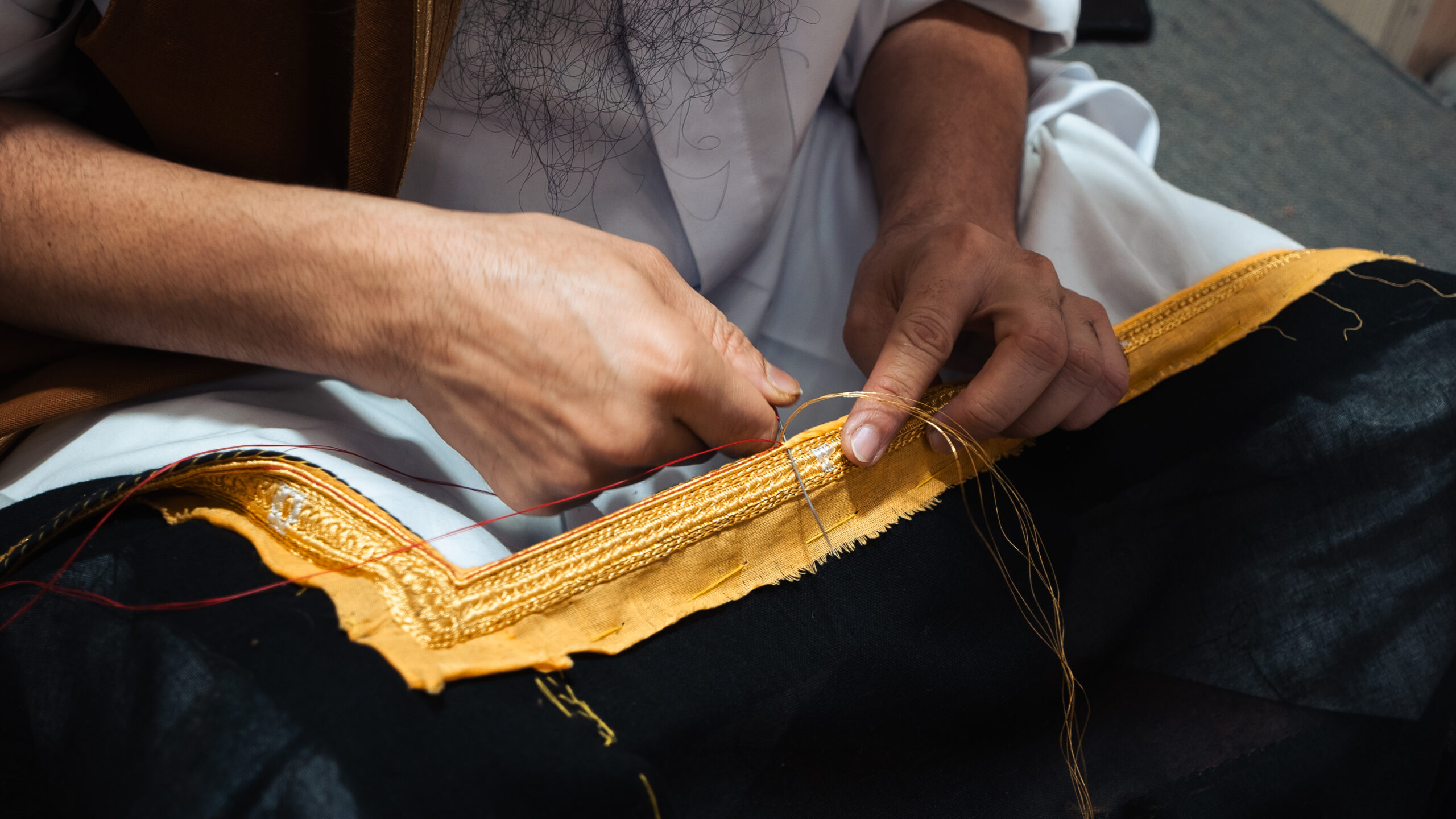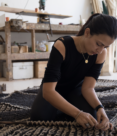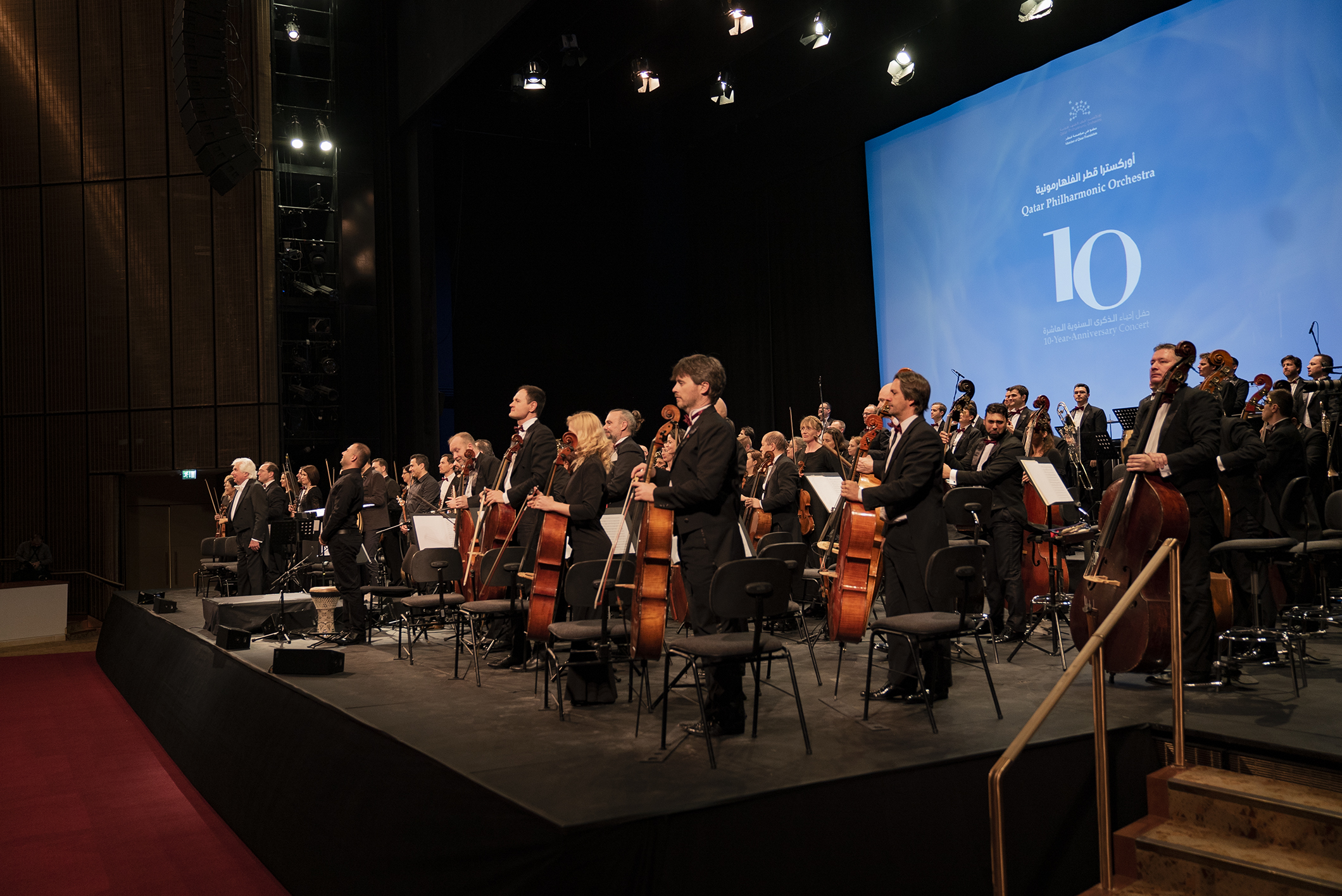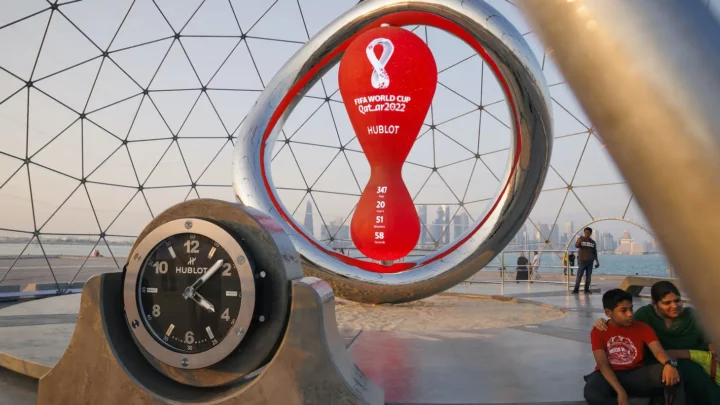December 2023
Ahmed Al Salem
Q Life speaks to the businessman behind the iconic bisht Lionel Messi wore to lift the FIFA World Cup Trophy.
In the heart of Qatar’s Souq Waqif stands Besht Al-Salem, a tailor established in 1958. The shop specialises in crafting the ornate Arabian cloak known as the bisht, where Ahmed Al Salem carries on the legacy of crafting this traditional garment.
View this post on Instagram
Besht Al-Salem suddenly found itself sprung into the global spotlight during the 2022 FIFA World Cup Final, when His Highness the Amir Sheikh Tamim Bin Hamad Al Thani placed one of Besht Al Salem’s bishts over the shoulders of legendary footballer Lionel Messi, following Argentina’s stunning victory over France.
An outer cloak worn by men across the region, the bisht embodies honour and heritage. “The bisht is more than just fabric; it’s a representation of appreciation and respect, reserved for special occasions”, Al Salem explains.
Crafted from high-quality materials, such as silk and wool, the intensive process of creating a bisht spans seven stages over seven to eight days. The first step is to create the central part of the bisht, called the ‘Haila,’ by hammering it into shape – this forms the foundation of the garment. Next, the tailors focus on the composition collar, which influences the overall design, followed by stitching the ‘Qitan,’ enhancing the visual appeal.
The inclusion of the bisht in the 2022 World Cup Final highlighted a piece of Arab culture that for many was little known, allowing global audiences to admire its impressive craftsmanship and unique design. The image of the garment being draped over the shoulders of one of the world’s greatest football players has become an iconic symbol of cultural exchange as Qatar hosted the first-ever FIFA World Cup in the Middle East.
Al Salem reflects on his reaction when His Highness presented Messi with a commissioned bisht, and how he felt a sense of immense pride – not only because the bisht was tailored by his shop, but because it was a Qatari-made garment.
In the days following the match, Al Salem recalls: “There was an overwhelming turnout of fans in the store”, as people rushed to share in this unique cultural moment. The brand displayed on the garment became a symbol of both historical and now contemporary tradition.
One year on from the historic 2022 World Cup, Al Salem expressess the same sense of joy and hope, “We want people to remember the championship that graced Qatar and take a deeper dive into our culture, heritage, and the spirit of the Qatari people”.
The bisht, once traditional attire only used for special occasions, has now become a link between tradition and global recognition, showcasing Qatar’s rich culture to a worldwide audience.






